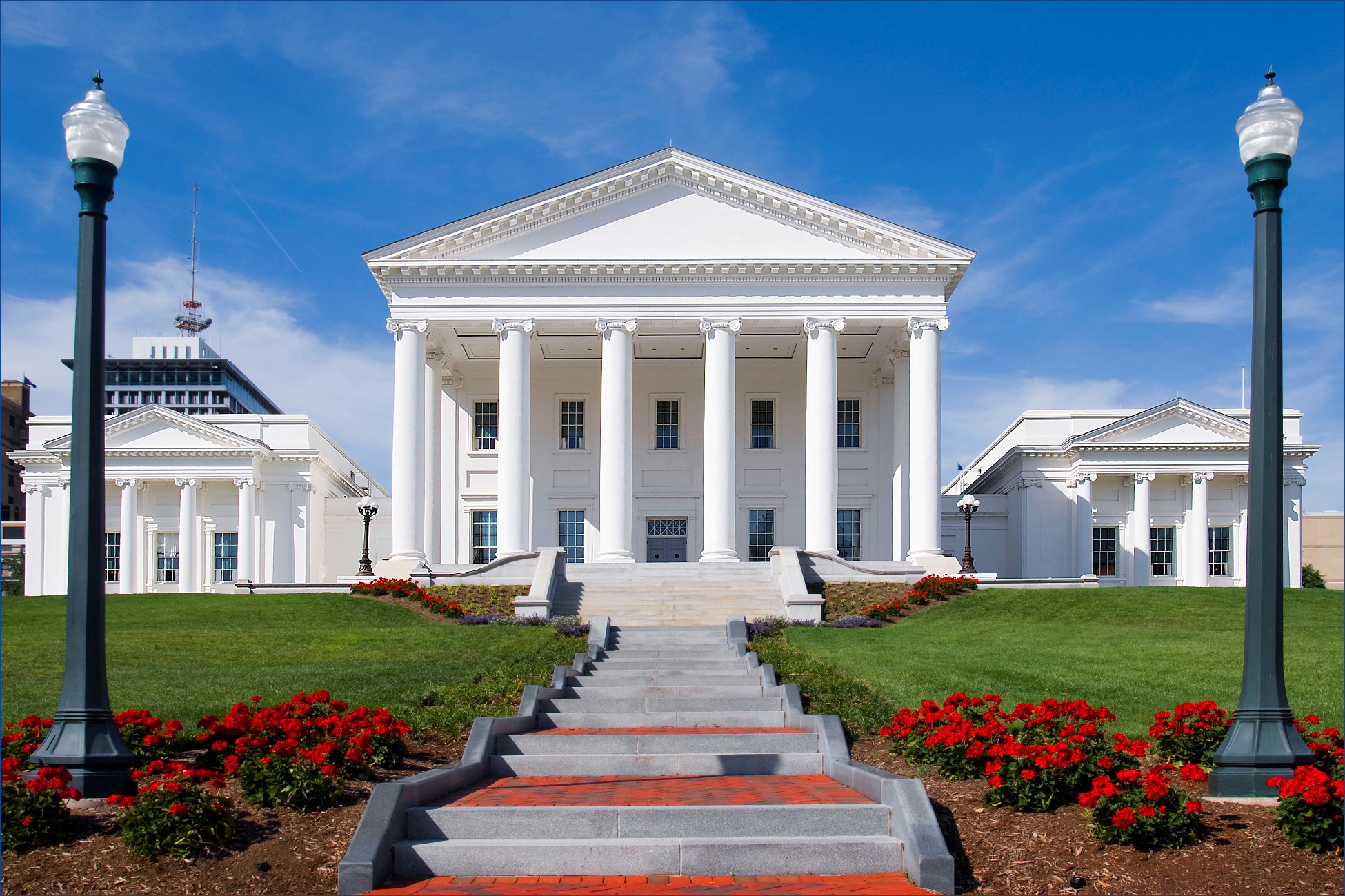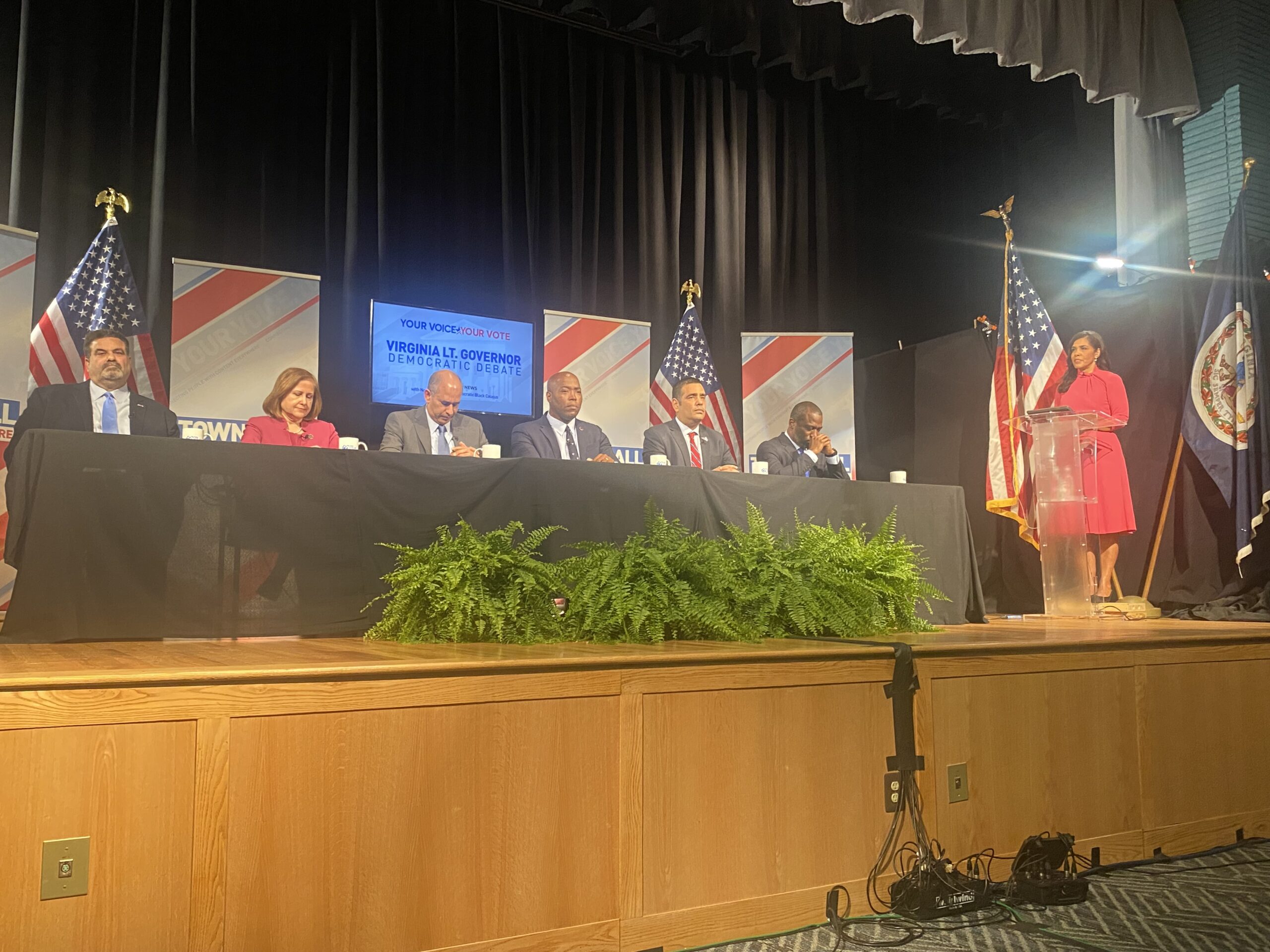Why Democratic officials won’t let a would-be candidate run for the Virginia House
by Virginia Mercury
The emails between Jasmine Lipscomb and Democratic officials in her part of Southside Virginia started out friendly. In mid-May, the two sides exchanged pleasantries about meeting each other and expressed optimism about the prospect of Lipscomb running for a Danville-area seat in the House of Delegates that favors Republicans.
The relationship soured quickly. Ten days later, local party officials told Lipscomb they would rather have no nominee in the Republican-leaning district than bend their self-imposed rules on filing fees and voter signatures to help her run.
The decision has left some Democrats baffled as to why their party — which has made democracy and diversity two pillars of its identity — would prevent a Black woman from running for a statehouse seat as a Democrat even though she’s the only one willing to do it.
“You should never have to fight your own party to run,” said Rebecca Daly, a Floyd County Democratic activist.
Lipscomb, a 37-year-old single mother of four who previously served as a U.S. Marine, said party officials gave her eight days to pay a nonrefundable $500 filing fee last month.
“They made it seem like I was welcome,” Lipscomb said. “And then boom, they slam me with this.”
Lipscomb said she didn’t have the money at the time but can pay now after starting to raise campaign funds and getting assistance from backers who want to help her get on the ballot. Lipscomb has been filing other campaign paperwork, and a fundraising report due this week showed she had collected nearly $4,500 as of June 8.
Filing fees are seen as a way to help local party organizations cover the costs of running a caucus or firehouse primary, but some see them as an impediment that can deter candidates who lack wealth or connections to money.
A Danville native, Lipscomb said she did paralegal-related work and guarded embassies during her time in the military and is now registered as a substitute teacher while finishing up a degree in criminal justice.
Some Democrats have been pressing party officials to change course and declare Lipscomb their nominee to run against Del. Danny Marshall, R-Danville, in the Republican-leaning 49th House District. Until the June 20 nominating deadline passes, Lipscomb’s supporters say, the party can either declare her its nominee or concede the seat to the GOP.
Party leaders have shown no signs of changing course, and some who work in Democratic politics have quietly expressed frustration that Lipscomb appeared to rely on bad advice that led her to think she didn’t need to follow basic party filing rules.
The Democratic Party of Virginia said it would not comment before the nominating deadline. A spokeswoman for the House Democratic Caucus referred questions to the state party.
Party officials seem to feel they have few good options, which could explain the public silence. Any pushback against Lipscomb could be seen as bad-mouthing someone who could still be a Democratic nominee as of next week, while any intervention from above to make her the nominee would undercut local party officials empowered to make decisions about their local races.
The controversy is also spotlighting a divide among Democrats over whether it helps to run candidates in as many districts as possible even in places where they have little chance of winning. Some see having Democrats on the ballot as crucial, keeping rural Democrats engaged and forcing Republicans to play defense. Others see longshot campaigns as a potential drain on resources to accommodate candidates with unrealistic expectations.
Virginia Democrats have a clearly stated preference for government-run primaries as opposed to party-run caucuses or conventions. The deadline for candidates to file to run in primaries was April 6, and no Democrat filed to run in Lipscomb’s district by that date. The party can still pick a nominee after the deadline through the caucus method. But local organizers dropped that plan after Lipscomb objected to the rules of the caucus that would have been unnecessary if she had filed by the primary deadline a few weeks earlier.
Lipscomb has pointed to a party rule that allows the Democratic nominating committee to declare her the nominee without a caucus. However, party officials don’t appear to be budging.
Lipscomb said she didn’t step forward for the seat until April 24, but she thinks she has “a shot” to be competitive with Marshall if the party would give her a chance.
“What’s the point of the Democratic Party if you’re not going to fight for a Democratic person or even try to train one up to get ready to do it?” she said. “Where’s the leadership? Where’s the guidance?”
On May 12, Patricia Harper-Tunley, a local Democratic organizer who chairs both the Lunenburg County Democratic Committee and the 5th Congressional District Democratic Committee, told Lipscomb it was “a pleasure” meeting with her, sent her some resources on how to run for office and passed along rules for the party-run process of picking a nominee for the Republican-leaning 49th House of Delegates District.
The next day, Lipscomb sent a reply thanking Harper-Tunley for the “lovely invitation” and said she had found it “enlightening” to get a glimpse of what it would mean to transition from military life to political life.
But contrary to what Democratic officials had planned, Lipscomb said she didn’t think she needed to pay a $500 filing fee and gather 100 voter signatures in order to qualify as a Democratic candidate for the seat. She also questioned whether there even needed to be a party-run caucus if she was the only Democrat interested in running.
Harper-Tunley, who is Black, assured Lipscomb the caucus rules were a normal part of how the Democratic Party of Virginia picks candidates for General Assembly races. In subsequent emails, Harper-Tunley said that because no candidates qualified for the caucus, “there is no nominee.”
“I would encourage any candidates who are actually serious about putting in the time, effort and work to run as their standard bearer to take steps to demonstrate that to these volunteer leaders,” Harper-Tunley said in a June 9 email.
Some DPVA critics have suggested the controversy is further proof of the party’s disregard for rural areas not inclined to vote Democratic. The email correspondence shows Lipscomb also seemed to clash with a group called Rural GroundGame, which focuses on helping Democrats connect better with rural communities.
In early June, Lipscomb sent an email suggesting Rural GroundGame had volunteered to help her collect the 100 petition signatures.
In response, Lynlee Thorne, Rural GroundGame’s political director, said that email “came as a surprise” and explained that the group had told Lipscomb the party’s filing requirements in the district weren’t particularly unusual and that she would only be supporting Lipscomb if Lipscomb would commit to meeting those requirements.
“I advised strongly against taking guidance from an individual in another state,” Thorne wrote in a June 1 email.
Lipscomb has been in communication with Fergie Reid Jr., a California-based voting rights activist who is the son of Virginia civil rights pioneer William Ferguson “Fergie” Reid Sr., who helped organize Black voters during Massive Resistance and in 1967 became the first Black person elected to the Virginia General Assembly since Reconstruction.
The junior Reid sees helping recruit and advise Virginia Democrats running in less-prioritized districts as part of carrying on his father’s work, but he occasionally clashes with party officials over the rigidity of rules like filing fees. Reid said he questions what message state Democratic leaders are sending to the Danville area’s substantial Black population by blocking a Black woman from running.
“Why is she being denied for her inability to pay $500?” he said.
Lipscomb’s supporters have also pointed out that if strict adherence to rules is the main issue, Harper-Tunley, the Lunenburg-based Democratic official communicating with Lipscomb, shouldn’t be involved because she doesn’t live in the House district at issue. Under Democratic rules, nominating committees for General Assembly districts are supposed to be made up of local party chairs from counties or cities within the district. No part of Lunenburg is within the 49th House District.
Trudy Berry, the Democratic nominee for a heavily Republican state Senate seat that overlaps with the 49th House District, recently sent a letter to Senate Democrats asking them to intervene and saying “lower echelons are killing the Party by allowing Republicans to take seats without a fight.”
(Virginia Mercury is part of States Newsroom, a network of news bureaus supported by grants and a coalition of donors as a 501c(3) public charity. Virginia Mercury maintains editorial independence. Contact Editor Sarah Vogelsong for questions: info@virginiamercury.com. Follow Virginia Mercury on Facebook and Twitter.)



